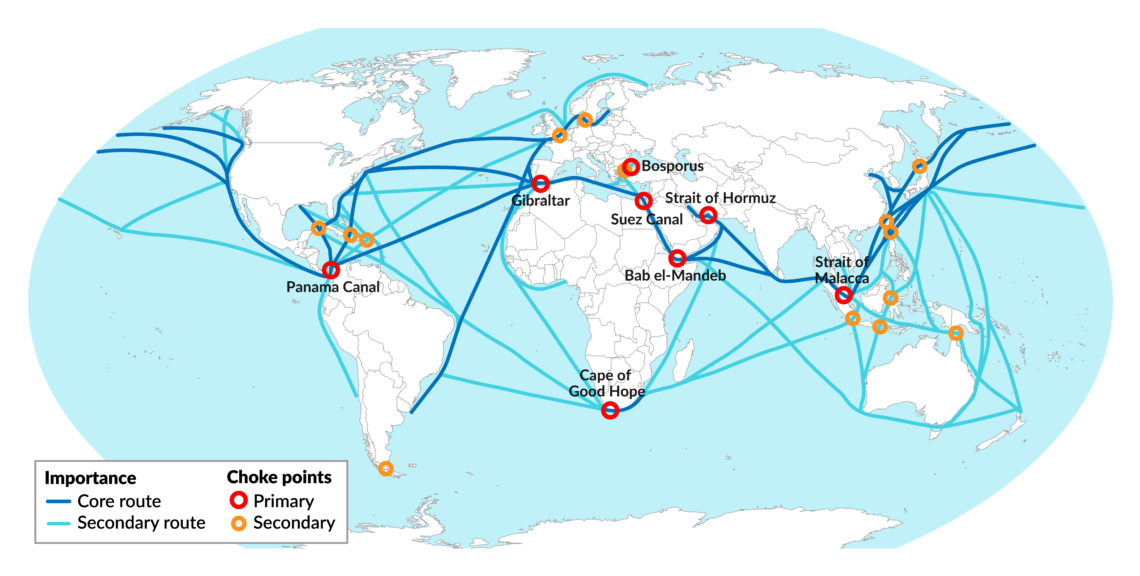New economic deals and what they mean for Europe
The EU has agreed on trade investment deals with the U.K. and China, while African countries launched an enormous free-trade zone. While each of these developments comes with some risks, they also offer opportunities for Europe to increase its global competitiveness.

At the end of 2020 and the beginning of 2021, several trade and investment agreements were concluded or came into effect that could benefit Europe and help it enhance its global competitiveness.
January 1 saw the launch of the African Continental Free Trade Area (AfCFTA), a new free trade deal that includes every African country except Eritrea. The zone boasts a cumulative gross domestic product of about $3.4 trillion and some 1.3 billion people. Full implementation of the agreement, including reducing tariffs – and more importantly, eliminating red tape – will take years. AfCFTA will need to be strengthened to simplify the continent’s byzantine maze of bureaucracy. The tangle of regulations causes chaos that allows authorities to make arbitrary decisions and opens up room for vast corruption. Streamlining these rules will be a significant step forward for Africa’s development.
African framework
The beginning of a new African free trade area is particularly relevant for Europe. The old continent must see its economic clout not only from the perspective of its short-term interests, but also from the longer-term view of its geopolitical interests.
Situated on Europe’s southern flank, Africa is of vital interest to Europe. Although Europe is remarkably diverse – one of its main strengths – Africa is even more so. Common geographical distinctions like “North Africa” and “sub-Saharan Africa” are superficial. Most African countries are multiethnic, and ethnic groups are spread across multiple states.
Real progress will depend on Brussels opening up to African products.
Openness and collaboration are critical. While the fruits of the AfCFTA initiative will only come in the future, having a framework is a step in the right direction. With African countries working together, the free trade zone could become an essential partner for the European Union. Real progress, however, will depend on Brussels opening up to African goods. European powers and global institutions should also refrain from meddling in African matters. Regardless, openness to African products will be crucial in order to balance Chinese influence and thereby uphold its global competitiveness.
China deal
At the end of 2020, the EU and China concluded negotiations for the Comprehensive Agreement on Investments (CAI). The deal was approved in principle after a video conference between Chinese President Xi Jinping, German Chancellor Angela Merkel (as Germany held the rotating EU presidency), European Council President Charles Michel, European Commission President Ursula von der Leyen and French President Emmanuel Macron. Final ratification may, however, take several weeks.
China committed to giving European investors more access to its market. At least in theory, Europeans should find a level playing field to compete in China. Beijing should offer more transparency on subsidies, limit state-owned companies’ privileges and curb forced transfers of technology from Europe. It also committed to ratifying the relevant parts of the International Labour Organization’s fundamental conventions and to combating forced labor. On the other hand, the agreement also facilitated market access for Chinese businesses in the European Union.
Though this all appears to be good news for European business, some crucial questions remain. Does Europe have the power to enforce compliance in China? Is it realistic to believe that Beijing will reduce the privileges of state-owned companies? Will the rules against forced labor not only be passed, but actually implemented?
Is it realistic to believe that Beijing will reduce the privileges of state-owned firms?
Another key question is how the new U.S. administration will react. With tensions between Washington and Beijing remaining high, President Xi sees an advantage in closer ties with Europe. A stronger Europe-China partnership is neither in Washington’s interest nor will it improve Europe’s transatlantic relations. Hoping to improve the transatlantic trade relations from the European position, the EU recently proposed “a new EU-U.S. agenda for global change” that includes measures to resolve trade “irritants.”
There is also the problem of Europe’s stand on “values.” Brussels suspended the EU trade agreement with South America’s Mercosur (a free trade zone including Argentina, Brazil, Paraguay, Uruguay and Venezuela) due to concerns over deforestation in the Amazon. Are Beijing’s human rights breaches, its mistreatment of Uighurs and Tibetans, its aggressive behavior in the South China Sea and intimidation of Taiwan negligible compared to environmental issues in Brazil? Certainly, China is a more consequential trading partner than Mercosur, but will that convince the European Parliament to overlook its self-important commitment to values?
Some European capitals also worry that the agreement was pushed through by the German presidency, and therefore primarily favors German-French interests. This is probably not the case, but President Macron’s inclusion in the video conference with President Xi for no obvious reason fueled suspicion.
Brexit present
The best news came just before Christmas. After a somewhat theatrical marathon of negotiation, London and Brussels concluded a Brexit deal. Rules facilitating trade were established, in the interest of both sides. The threat of huge traffic jams across the English Channel was avoided. A cynic might point out that the emergency, last-minute nature of the talks allowed leaders on both sides to save face while yielding on certain issues. But the essential point is that trade and investment conditions have been secured.
Despite several caveats, advances on the trade front are positive developments. Brussels is trying to live up to one of its main tasks: strengthening Europe’s global competitiveness in the world market.
